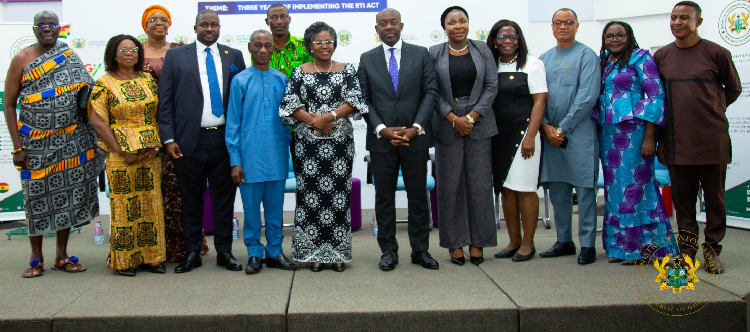
GH¢433.6bn nominal GDP as at June 2021
As at the end of June 2021, Ghana’s nominal GDP was GH¢433.6 billion (GH¢433,685,656,912).
GH¢34.6bn to GH¢52bn not getting to govt
It means that the revenue not getting to government ranges between GH¢34.6 billion (GH¢34,694,852,552.96) and GH¢52 billion GH¢52 billion (GH¢52,042,278,829.44).
Govt compelled to mobilise funds through additional taxes
This is compelling government to find other ways to mobilise funds through additional taxes to fund the demands for roads, schools, hospitals as well as other priority project.
Increase in domestic revenue key to reduce borrowing
Speaking to journalists in Accra, the Minister for Information, Kojo Oppong Nkrumah, said finding the required domestic revenue to finance increasing demand for development across the country would reduce the government’s borrowing to finance the deficit.
2022 budget to be presented on November 17
As government gears up for the presentation of the 2022 Budget Statement and Economic Policy in Parliament on Wednesday, November 17, 2021, there is an ongoing national conversation on how government should go about its revenue mobilisation in order to close the gaping fiscal deficit in its books.
With dwindling revenue streams
With dwindling revenue streams attributable to the slowdown in business activities occasioned by the coronavirus pandemic, Ghana is lagging behind most of its peers within the West African sub-region as far as the tax to GDP ratio is concerned.
Low tax to GDP ratio
While Ghana is doing below 15%, countries in the sub-region like Ivory Coast and Nigeria are hovering around an average of 18%, raising questions on whether increasing taxes in the 2022 budget will help the government shore up revenue inflows to fund developmental projects.
Rising demand for roads, hospitals and other social amenities
Mr Oppong Nkrumah explained that as demands for public services like the construction of roads and hospitals increase, one of the ways government can bring about development is to mobilise more domestic revenue to enable it to satisfy the legitimate needs of its people.
He said, “Obviously, we would need to introduce some new broad-based taxes if we are to rake in the needed revenues to deliver what our people desire.
“New taxes may have to be imposed on items that exclude the poor and do not have high cascading effect so that it does not increase the difficulties that the Ghanaian is going through,” Mr Oppong Nkrumah added.
He said the government’s target through the 2022 budget is to consolidate the gains made so far in previous years and reboot the economy and set it back on the right track.
Govt to spend GH¢128.3bn in 2022
Information available indicates that the government’s total expenditure in 2022 is projected at GH¢128.3 billion, which will be 25.8% of GDP.
2022 expenditure equals 25.8% of GDP
Data from the Ministry of Finance indicate that total expenditure, including payments for the clearance of arrears, is projected at GH¢128.3 billion, which is equal to 25.8% of GDP in 2022.
13% increase over GH¢113.8bn in 2021
This means government expenditure in 2022 is expected to increase by almost 13% relative to the GH¢113.8 billion expenditure in 2021.
GH¢89.1bn revenue target for 2022
In terms of revenue mobilisation, government intends to raise an amount of GH¢89.1 billion, representing 17.9% of GDP for 2022.
23% growth over 2021
This represents a nominal growth of 23% over the projected outturn for 2021.
GH?39.2bn deficit for 2022
Further analysis shows that the overall budget deficit, including financial sector clean-up and payment to independent power producers (IPPs), is projected at GH¢39.2 billion, representing 7.9% of GDP for 2022.
Interest payments to be higher than compensation
The ministry also noted that for the second time in a row, interest payments are expected to be higher than compensation of employees.
GH¢37.2bn interest payments
Interest payments is projected at GH¢37.2 billion, which equals 7.5% of GDP in 2022.
GH¢31.5bn compensation of employees
Additionally, the compensation of employees is projected to increase from GH¢31.5 billion, representing 7.2% of GDP in 2021 to GH¢34.6 billion, which represents 7% of GDP in 2022.
Interest payments and compensation of employees for decades have been the two main components of the government’s annual expenditure accounting for a little over 58% expenditure in 2021.
For the first time in 2021, the government spent more on interest payments amounting to GH?30.3 billion relative to the compensation of GH¢35.9 billion. Read Full Story






















Facebook
Twitter
Pinterest
Instagram
Google+
YouTube
LinkedIn
RSS